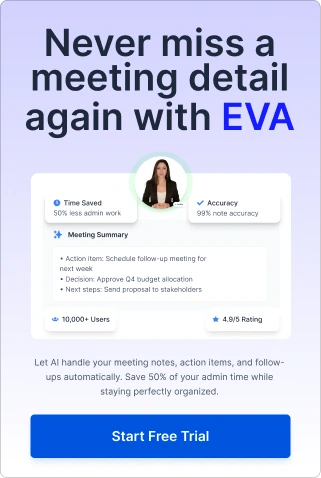Table of Contents
What is an AI-Powered Website?
Imagine a world where your customers rarely have to pick up the phone or send an email to get help. A world where their questions are answered, and their problems are solved, often before they even realize they have one. This isn’t a futuristic dream; it’s the reality that proactive AI customer service is bringing to businesses, especially when implementing proactive AI customer service on your website.
Today, customers expect companies to anticipate their needs. In fact, 80% of customers expect companies to reach out to them proactively, before they even have to ask for help, according to Salesforce Research. This shift in expectation highlights a critical challenge for businesses: how to keep up with customer demands without overwhelming their support teams or breaking the bank.
Traditional, reactive customer support models in the US are struggling. They often lead to high operational costs, frustrated customers, and ultimately, lost business. When customers have to wait on hold, navigate complex phone trees, or wait days for an email response, their patience wears thin. This can lead to negative reviews, damage to your brand, and a significant churn rate.
The good news is that AI-powered website assistants are changing this game. They offer a smart, efficient way to deliver proactive customer support, helping businesses anticipate needs and solve issues before they escalate. This article will give US business leaders and CEOs a practical, data-driven guide on how to use proactive AI customer service on their websites. The goal is to make customer experiences better, lighten the load on support teams, and build stronger customer loyalty.
Why Helping Customers Early Matters Now
What US Customers Expect Today
Customer expectations have changed dramatically. Today’s customers, especially in the US, don’t just want good service; they want fast, personalized, and effortless service. They expect businesses to understand their needs and offer solutions before they even have to ask. Data shows that 73% of US consumers say that valuing their time is the most important thing a company can do to give them good service, according to Forrester. This means waiting on hold or navigating complex FAQs is no longer acceptable. Digital natives and the rise of instant communication have set a new standard.
When businesses only react to problems, it leads to unhappy customers, bad online reviews, and a damaged brand. This often results in customers leaving for competitors. For example, US businesses lose an estimated $83 billion annually due to poor customer experience, as reported by SightCall. This highlights the urgent need for a shift from reactive to proactive support.
The Cost of Waiting: Why Reactive Support Hurts US Businesses
Traditional customer support, while necessary, comes with a heavy price tag.
The average cost per customer interaction is around $10, with inbound calls costing about $7, emails $4, and web-based live chat also $4.
These costs add up quickly, especially for businesses handling a high volume of inquiries.
Beyond the direct financial outlay, there’s the hidden cost of customer churn. A significant 14% of average customer churn is due to poor customer service, according to Retently.
Furthermore, a staggering 66% of consumers have ended their relationship with a company because of bad customer service, as found by Zendesk.
These numbers underscore that reactive support isn’t just inefficient; it’s a major drain on resources and a threat to customer loyalty.
What Proactive Customer Support Means with AI
Proactive customer support is about anticipating and addressing customer needs before they arise. It’s not just about having a chatbot that answers common questions; it’s about using AI to predict what a customer might need next, offering personalized assistance, and solving potential problems before they become actual issues.
This approach focuses on understanding the customer journey and stepping in at the right moment with the right solution.
How AI Helps You Be Proactive, Not Just Reactive
How AI Support Has Grown
AI in customer service has come a long way. In the beginning, chatbots were simple tools, mostly used for answering basic, frequently asked questions.
They were reactive, waiting for a customer to type a query before responding. Today, AI has evolved into sophisticated systems that can anticipate needs and offer solutions proactively.
This shift is powered by advancements in machine learning and natural language processing (NLP), allowing AI to understand context, sentiment, and even predict customer behavior.
How AI Knows What Customers Need on Your Website
AI’s ability to anticipate customer needs on your website is rooted in its capacity to analyze vast amounts of data and identify patterns. By combining big data analytics with AI, it can spot trends and anomalies in real-time. For instance, if a customer spends an unusual amount of time on a product page, or repeatedly clicks on a help section, the AI can interpret this as a sign of potential confusion or a need for more information. This allows AI to deliver solutions before customers even realize a problem exists.
Making Things Personal for Everyone: AI's Role in Proactive Help
One of the most powerful aspects of proactive AI is its ability to personalize interactions at a scale. By analyzing customer data such as browsing history, purchase patterns, and demographics, AI can deliver highly relevant and personalized proactive interventions. This makes customers feel seen and understood, fostering a deeper connection with your brand.
Key AI Tools for Proactive Website Customer Service
AI That Understands Language (NLP and NLU) for Better Conversations
At the heart of any effective AI customer assistant lies its ability to understand human language. Natural Language Processing (NLP) and Natural Language Understanding (NLU) are the core technologies that enable AI to interpret complex queries, grasp the sentiment behind a customer’s words, and understand their true intent. These technologies redefine how businesses engage with their customers, enhancing the overall experience.
AI That Predicts (Machine Learning) for Smart Triggers
Machine Learning (ML) algorithms analyze vast datasets of past customer interactions, allowing AI to predict future needs or potential issues before they occur. For example, an ML model can predict a user’s likelihood to abandon a shopping cart based on browsing history. When patterns are detected, the AI can trigger proactive actions like offering a discount or initiating a chat.
Connecting Data (CRM Synergy) for a Full Customer View
For AI to be truly proactive and personalized, it needs access to comprehensive customer data. Integrating AI with your CRM system gives the assistant a 360-degree view of each customer, allowing it to provide informed, relevant, and timely proactive support.
How to Set Up Proactive AI Customer Service
Check Your Data and Set Clear Goals for AI
Before diving into AI, assess your current customer data and support infrastructure. Set clear goals for your AI initiatives, such as reducing support tickets by 20% or improving customer satisfaction (CSAT) scores by 15%.
Design How Customers Will Get Proactive Help
Map out the customer journey on your website and identify key moments where AI intervention could add value—like offering help when a user spends too long on a page or showing personalized suggestions based on browsing behavior.
Keep Training and Improving Your AI
AI is not a one-time solution but requires continuous refinement. Monitor its interactions, gather feedback, and optimize its performance to ensure it continues delivering relevant and effective proactive support.
Working Together: Humans and AI on Support Teams
AI can handle routine tasks, while human agents focus on complex issues that require empathy and deep understanding. Implementing seamless AI-human handoffs ensures customers get the best of both worlds.
Seeing the Results: What Proactive AI Does for Your Customers and Business
How Proactive AI Saves Money and Boosts Business
Businesses using AI-driven support solutions see 25-45% reductions in support costs, with improvements in efficiency and overall customer experience. By reducing call volumes and optimizing agent time, AI helps businesses cut costs while driving revenue through better customer engagement.
Making Customers Happier (CSAT) and More Likely to Recommend (NPS)
Proactive AI directly boosts customer satisfaction (CSAT) and Net Promoter Scores (NPS) by anticipating customer needs and resolving issues before they become frustrated. This leads to increased customer loyalty and higher chances of customers recommending your business.
Building Customer Loyalty and Keeping Them Around
Proactive AI helps foster long-lasting customer relationships by consistently providing value and demonstrating commitment to customer success. This reduces churn and turns customers into brand advocates.
What's Next: New Ideas in AI-Powered Proactive Support
Even More Personal Help and Smarter Predictions from AI
As AI advances, it will offer even more personalized and accurate predictions, tailoring interactions to everyone’s unique needs and behaviors.
Talking to AI and Using Different Ways to Get Help
Voice AI is revolutionizing how customers interact with support systems, providing a hands-free, convenient way for users to receive assistance.
Fair AI and Keeping Your Data Safe in Proactive Support
As AI becomes more integrated into customer service, ensuring transparency and data privacy is critical. Adopting ethical AI practices and complying with regulations like CCPA will help build trust with your customers.
Paradiso AI: Your Guide to Better Proactive Customer Service
The Paradiso AI Website Assistant is designed to be the foundation of your proactive customer service strategy. It offers 24/7 support with intelligent, personalized assistance, allowing you to help customers before they even ask.
Conclusion
Proactive AI customer service is a strategic necessity for businesses aiming to improve customer experiences while cutting costs and boosting loyalty. By anticipating customer needs and providing personalized solutions, AI is transforming the customer service landscape. Paradiso AI offers the tools and insights to implement AI-powered support that drives results.
Ready to transform your customer support? Explore Paradiso AI’s Website Assistant, Email Agent, and Calling Agent today to deliver a future-proof, proactive customer service strategy.
Better Customer Support with AI Website Assistants
Proactive AI customer service anticipates customer needs before they ask, offering solutions before issues escalate.
Traditional support is reactive, while AI-powered support is proactive—predicting and solving issues ahead of time, improving the customer experience.
AI analyzes user behavior on your website, such as which pages they visit or how long they stay, to predict when they may need help and provide timely assistance.
Benefits include enhanced customer experience, reduced support costs, and improved customer retention through faster, personalized service.
By anticipating needs and resolving issues quickly, AI builds stronger customer relationships, fostering loyalty and reducing churn.
AI assists by handling routine tasks, allowing human agents to focus on complex, high-value interactions, enhancing overall service.
Choose AI tools that integrate with your system, train them with customer data, and identify key touchpoints to provide proactive support.
 Free
Free










